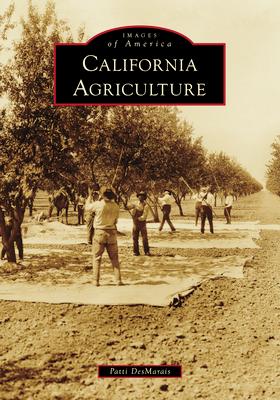Beginning with the Spanish padres in 1769 and reaching its apex in the 1950s, California's rise to a global leader in agriculture rested on a series of converging events. California's population exploded during the Gold Rush, and many who chose to stay found their gold in California's sunshine, fertile soil, and optimal growing climate.
Initially, those settlers grew staples such as grain, but by the early 1900s, due to innovations in irrigation, transportation, mechanization, and food processing, California rose to the nation's top grower and shipper of fresh produce. California currently grows over two thirds of America's fruits and nuts and over one third of its vegetables, and each fruit, vegetable, nut, and grain has its own unique backstory. California's crop history is full of the risk-taking and determination of pioneers, immigrants, and entrepreneurs. California also deserves credit for many modern marketing and advertising methods, and the preponderance of food "capitals of the world" is a nostalgic feature of California culture.
Patti DesMarais has lived in six California cities. She has a bachelor of arts degree in television and film production from San Diego State University and a master of arts in humanities from California State University, Dominguez Hills. She collects vintage crate labels and has picked lemons, oranges, grapefruits, peaches, and avocados from her own California backyards.
